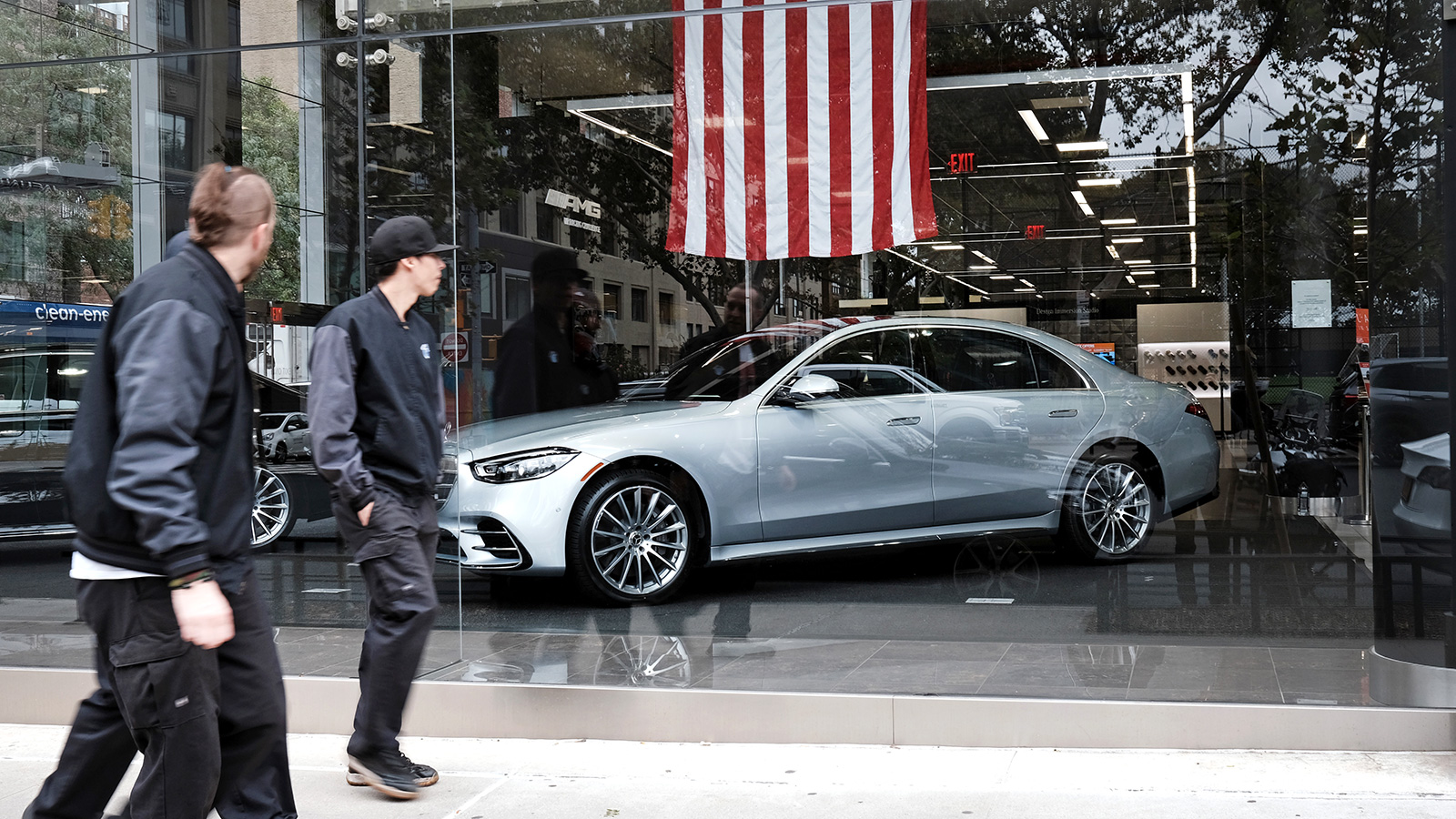The Average New Car Price Has Already Risen Another $5,000 In Just Nine Months
And if you're buying from a luxury brand, it's gone up by a hell of a lot more than that.
In December of 2020 the average price of a new car in this country topped $40,000 for the first time ever. Nearly a year later, we can wave goodbye to the $45,000 mark.
September's $45,031 average makes for the sixth-consecutive month of rising average new car prices, each one setting a new record high, according to Kelley Blue Book. In August it was $43,418. Blame SUVs and full-size pickups comprising ever-larger slices of the overall sales pie, compared to back in the summer when smaller crossovers and passenger cars were stronger. Luxury brands shifted more vehicles last month, too.
Still, the overall number of cars sold in September was down 7.3 percent compared to where it'd been in August. That leaves September as one of the worst-performing months in terms of sales volume of the last 10 years.
So, in short, fewer new cars left the lots but more of them were on the pricier side. KBB's average prices don't factor incentives, but those have roundly diminished across the board, too:
Incentive spending fell in September to another record low, dropping to 5.2% of [average transaction price] last month, a decrease from 5.6% in August 2021 and well below the 10.0% of ATP recorded in September 2020. Porsche, Land Rover, Genesis, Subaru and Toyota had among the lowest incentive spend last month, all 3% of ATP or lower. On the other hand, Alfa Romeo, Buick, Fiat and Infiniti each had incentive levels above 10% of ATP.
Even among those four brands more desperate for sales, average transaction prices still rose — by 2.6 percent in Fiat's case and 3.5 percent for Buick, for example. In fact, Acura, Ford, Mini, Subaru and Volkswagen were the only makes surveyed that tended to sell cars for less money in September than they had in August. Subaru appeared to have a particularly difficult September thanks to the chip shortage, even though Crosstreks reportedly spent fewer days on lots than any other nameplate.
And if we hone in on the luxury badges, well, things are truly getting out of hand:
Luxury sales accounted for 16.6% of total market sales, up from 15.1% in September 2020. Luxury share in September was among the highest in the past decade, and luxury buyers paid an average of $60,845 for a new vehicle last month. Further, many luxury brands, notably Acura, Cadillac, Genesis and Mercedes-Benz, achieved year-over-year ATP gains in excess of 20%. Cadillac, for example, saw ATPs jump up more than 32% last month, reaching $81,939.
Year-over-year average transaction price gains in excess of 20 percent! For an idea of what that looks like in raw prices, the average new Mercedes-Benz cost $59,899 in September 2020. Last month, it cost $75,369. That's what a 25.8-percent rise represents.
Fair enough, you might think, if those who can pay more choose to — but of course this phenomenon isn't limited to fancy new cars. Wholesale prices of used cars are also setting records after it seemed they might taper off late in the summer. It's no surprise that nearly half of new car buyers KBB surveyed in August said they'll probably delay their shopping for several months to a full year. Anyone brave enough to bet that things will be better by then?
